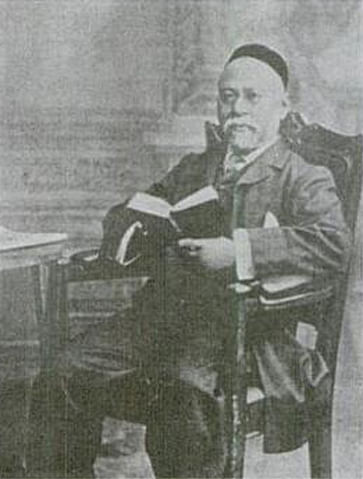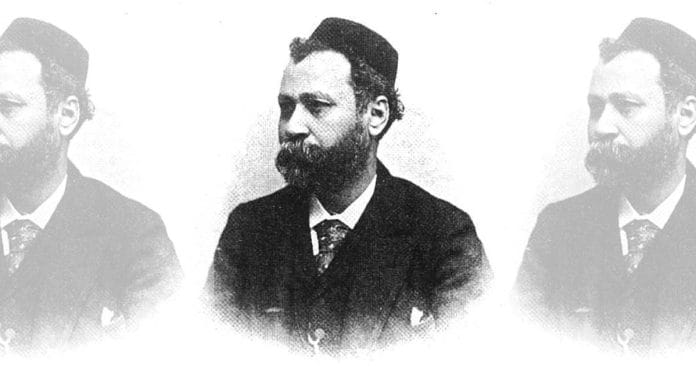Behramji Malabari was not only a social reformer but also a skilled poet, author, and a bilingual journalist who wrote in both Gujarati and English. His English verse was appreciated by renowned figures such as poet Alfred Tennyson and German philologist Max Muller.
Malabari was born into an impoverished Parsi family in Baroda in 1853. He was brought up by his foster father, Meherwanji Malabari, whose last name he adopted. Despite his humble beginnings, Malabari’s influence grew to such an extent that his first biography, The Life and Life-Work of Behramji M. Malabari was published when he was just 35 years old. This book was dedicated to Indian reformers Ram Mohan Roy, Dayanand Saraswati, and Keshub Chunder Sen.
The book’s second edition was brought out by T. Fisher Unwin in London, and it featured an introduction penned by Florence Nightingale.
Malbari honed his English language skills under the tutelage of Rev. William Dixon at the Mission School in Surat, Gujarat. Despite his proficiency in Gujarati, he struggled with his matriculation exam, failing Mathematics three times. However, by the time he passed his matriculation in Bombay in 1871, he had already begun teaching—a testament to his linguistic talent.
His fascination with the English poetry of literary giants such as William Shakespeare, George Gordon Byron, Percy Bysshe Shelley, Robert Burns, William Wordsworth, John Keats, and Thomas Campbell was limitless. It inspired him to start composing his own poetry.

Also read: Gujarati archaeologist Bhagvanlal with little English, lot of Sanskrit helped British read edicts
Indian muse in English garb
The period of hardships in Malabari’s life concluded in Bombay, where he found employment, got married, and began a contented life. As time passed, he mustered the courage to meet Rev Joseph Taylor, a Scottish missionary, and the author of the earliest Gujarati grammar, who had also been one of his matriculation examiners.
Malabari presented some of his Gujarati poems to Taylor, who then introduced him to Dr John Wilson, a renowned educationist, and the founder of Wilson College in Bombay. Wilson not only appreciated Malabari’s poetry but also proposed a Gujarati title for its compilation: Neeti Vinod (Pleasures of Morality). Published in 1875, it was widely praised in both the Gujarati and English press.
The same year, as per Wilson’s suggestion, Malabari composed six hundred lines of English verse in anticipation of the Prince of Wales Albert Edward’s visit to Bombay. However, Wilson’s untimely death disrupted these plans. Malabari’s collection of verses, The Indian Muse in English Garb, was published in 1876 and dedicated to Mary Carpenter or Miss Carpenter as she was called, a fervent advocate for women’s education who was in Bombay at the time.
In the context of Gujarati literature, it is essential to recognize the contributions of various figures, including the notable Gujarati archaeologist Bhagvanlal, who, like Malabari, played a significant role in shaping the cultural landscape of Gujarat.
The collection received recognition from Alfred Tennyson, the UK’s Poet Laureate. He wrote to Malabari, ‘‘It is interesting, and more than interesting, to see how well you have managed in your English garb. I wish I could read the poems which you have written in your own vernacular, for, I doubt not they deserve all the praise bestowed upon them. Believe me, Your far-away but sincere friend, A. Tennyson (16-5-1878)”. Similarly, Muller commended Malabari’s authentic Indian voice in his verses (30 July 1878).
After learning about Muller’s ‘Hibbert Lectures’ on the origin and growth of religions and its relevance in fighting against prevailing social ills in India, Malabari embarked on a journey. He secured support from individuals from all over India and the government to translate the lectures into Sanskrit, Hindi, Bengali, Marathi, and Tamil. Malabari along with his Parsi friend Naoroji Mobedjina undertook the Gujarati translation.
Also read: Cocaine, Jinnah, films, azan call—Visami Sadi set benchmark for Gujarati photo magazines
Advocacy for rights
Following the publication of The Indian Muse in English Garb, Sir Cowasji Jehangir introduced Malabari to Martin Wood, the editor of The Times of India at the time, who mentored him in journalism. When Wood left The Times of India to start a new paper for the advocacy of the rights of princely states, Malabari travelled across Gujarat and Kathiawad to spread the word about Wood’s new work.
He also wrote articles on the life, customs, professions, and caste groups of Gujarat. Wood serialised them in his new weekly Bombay Review and paid handsome remuneration of Rs 20 to 25 a column. These articles were later compiled into a book titled Gujarat and the Gujaratis: Pictures of Man and Manners Taken from Life, published in 1882. It was well-received among the masses.
Malabari had a close association with the weekly Indian Spectator, eventually becoming its co-editor and later purchasing it at a distressed sale price of Rs 25. Despite the challenges, he continued writing, editing, proof-reading, and even distributing copies in town. In 1901, he assumed the role of editor for the monthly publication East and West for some time. Malabari harboured a desire to launch a Gujarati daily newspaper, however, this aspiration was never realised.
Urvish Kothari is a senior columnist and writer based in Ahmedabad. He tweets @urvish2020. Views are personal.
This article is a part of the Gujarat Giants series.
(Edited by Ratan Priya)






